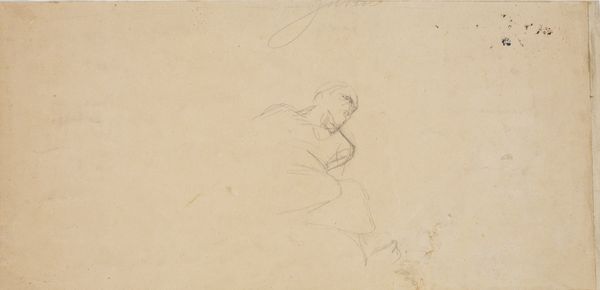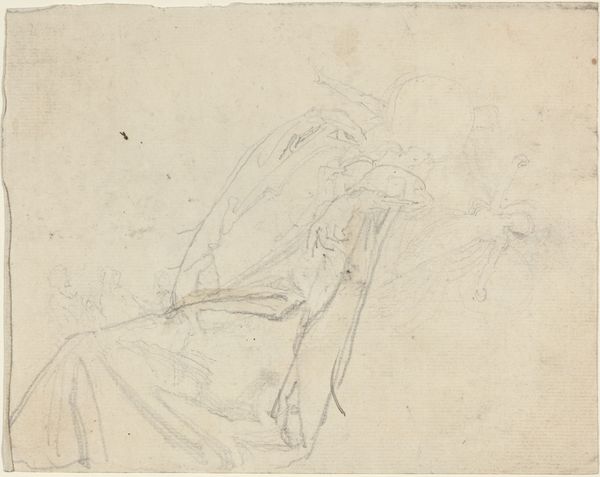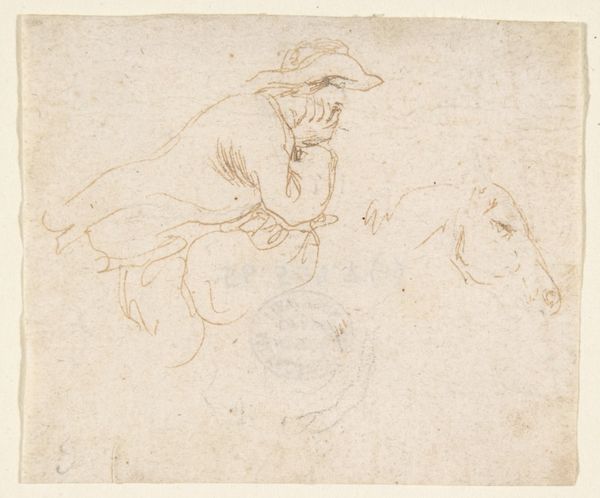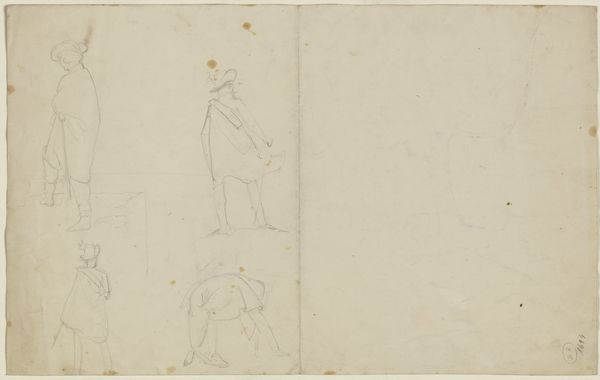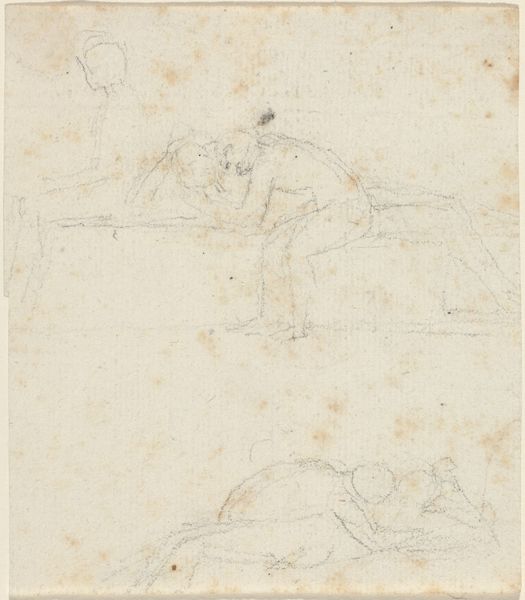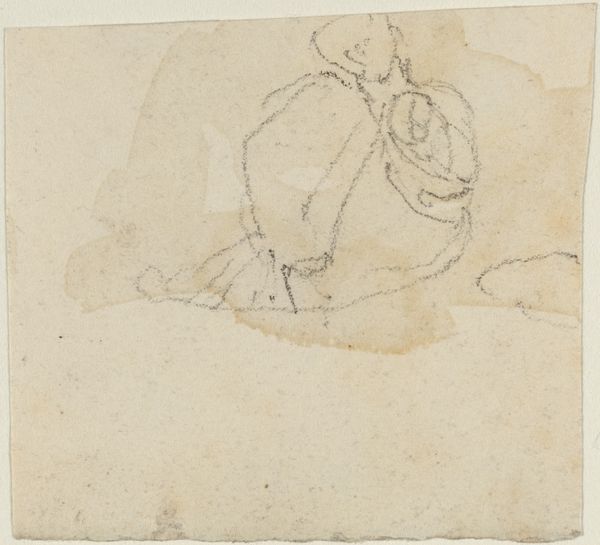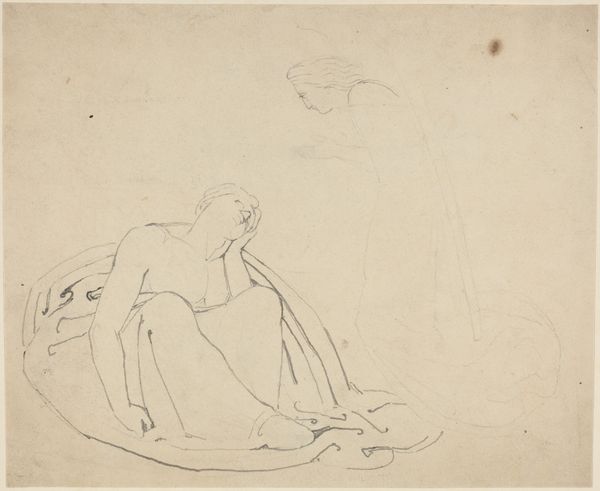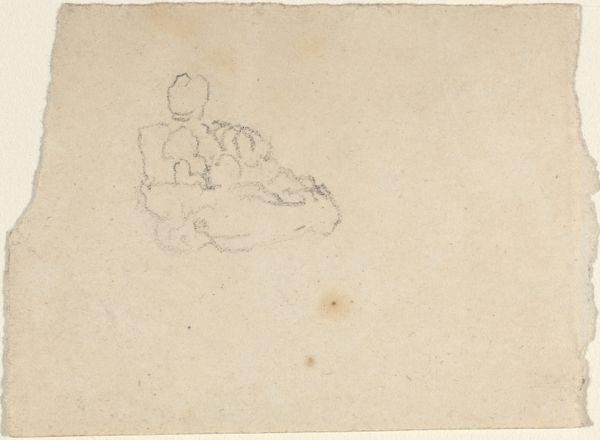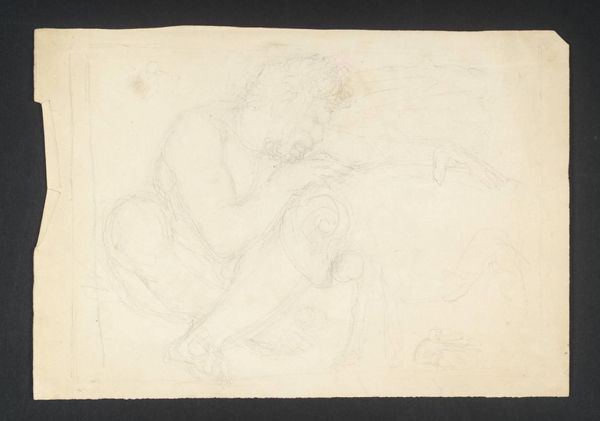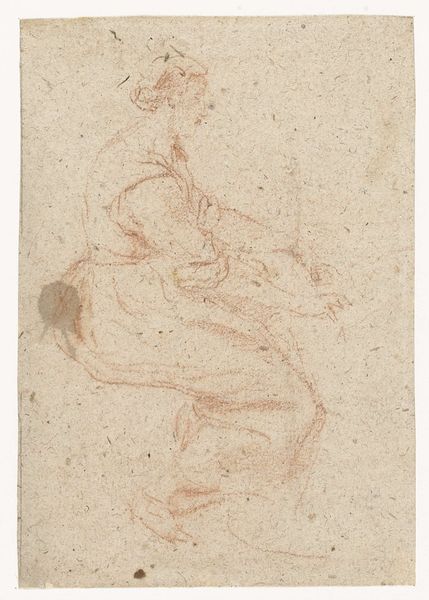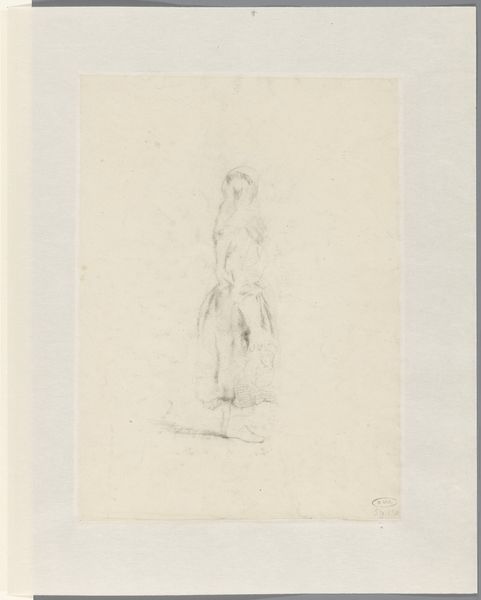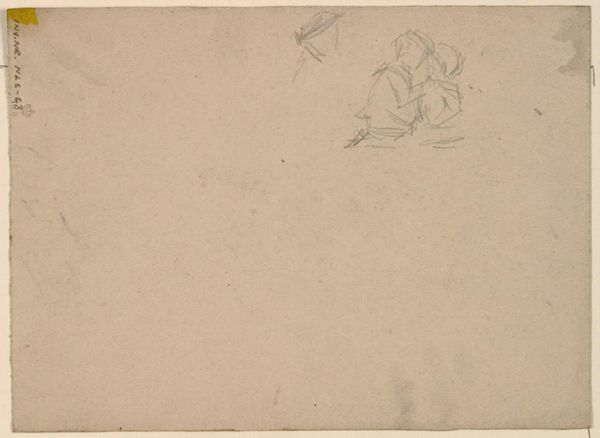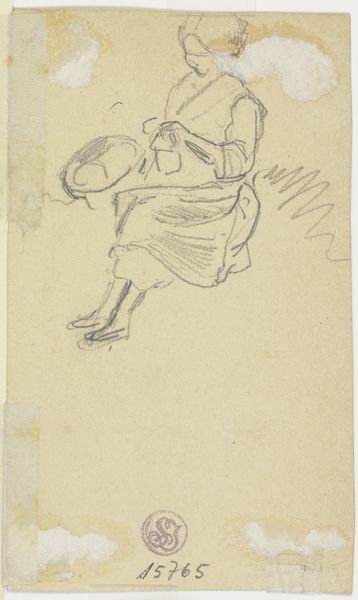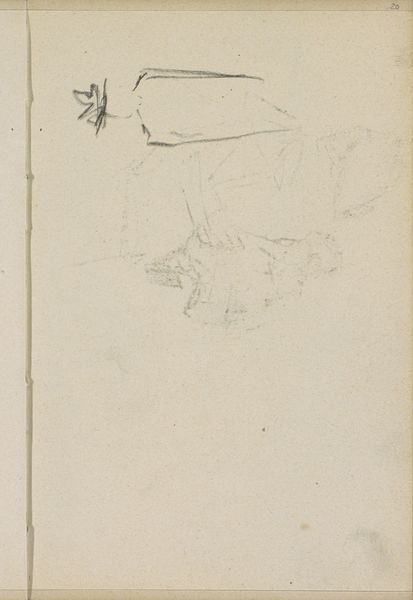
drawing, print, paper, pencil, graphite
#
portrait
#
drawing
# print
#
pencil sketch
#
figuration
#
paper
#
pencil
#
line
#
graphite
Dimensions: 82 × 96 mm
Copyright: Public Domain
Curator: Here we have an understated yet compelling drawing, "Woman Sitting," attributed to William Henry Pyne, date unknown. The piece is rendered in pencil and graphite on paper. It's currently held in the collection of the Art Institute of Chicago. Editor: It’s incredibly subtle, almost ephemeral. The light pencil strokes give the figure a sense of transience, like a memory fading at the edges. Curator: Indeed, the line work carries a lot of weight. The simplicity invites us to contemplate the sitter’s inner state, her psychology. There is a timelessness conveyed here that feels pervasive and haunting. The artist uses so little information and manages to render something evocative and powerful, psychologically speaking. Editor: Right, and who is she? What are the power dynamics at play between the artist, presumably a man, and this anonymous woman presented solely from the back? We don’t see her face, thus denying us access to her thoughts and feelings, which, depending on its intent, could render her submissive. Curator: I am wondering if we’re projecting a bit given the absence of details surrounding its making. But her obscured face, regardless, does suggest a withdrawal from direct engagement, perhaps emblematic of societal constraints on women, their limited access to public spheres at a given point in history. Editor: Agreed. And that feeling is exacerbated by the light pencil work. It could almost be interpreted as vulnerability—a woman depicted in a quiet moment. But the composition almost renders her facelessness, stripping her identity and personhood away, further disenfranchising and dehumanizing women in an oppressive society. The portrait aesthetic can be quite a controversial approach given this work's date is unknown to us. Curator: This reading definitely introduces new layers, even if unintended. A fascinating tension, indeed. I suppose its enigmatic nature can trigger all sorts of assumptions related to representation and being. It goes to show that even seemingly simple sketches can hold powerful narratives and speak volumes. Editor: Absolutely, reminding us of art's crucial role as a mirror and critique of cultural narratives, ever demanding that we stay actively attuned to the ways of viewing and portraying identities that inform what and how we value as a society.
Comments
No comments
Be the first to comment and join the conversation on the ultimate creative platform.
